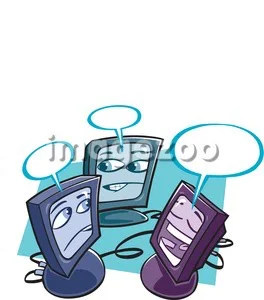The internet was an extraordinary invention, with the greatest potential to usher in social change since the old days of the printing press or the railway steam engine.
Built upon a technology that is not fully regulated, it empowers everyone with ability to access to the internet to be creators of information.
It is also an enormous library of global information with consciousness and knowledge from the past and the present and presented in an easy-to-access format commonly HTML.
As a result, we now have the liberty to create our own information, either personal or public, and share it with everyone across any part of the continent in this global world. It permits the equality of access that we have never seen in the past where hardcopies of information being the mainstream media in circulation.
But has its potential as a great leveller for the whole world already passed?
Twenty years ago, the web was colonised by a group of early adopters who believed that the ideal society was equal - every individual had a right to get involved, there should be no hierarchy, and rules would be mutually determined for the common intent and purpose.
People believed the sanctity of the individual was superior to that of the governing state, and that getting in touch with people from across any region in the globe would be enough to solve the world's ill intent.
But the idealistic web pioneers maintained that the new digital frontier would provide an avenue for intellectual ground on which to create a freer “information exchange” society.
The original loose approach to social behaviour online has clashed with the essential features of our nature - our desire to take control, to own and to profit.
Implicit inequalities emerged early, but once the Internet became a space for commercial gain in the mid-1990s and its population exploded, being at the top of the pile - translated as holding the first position in Google's search results - became the benchmark for offline financial returns. The vast multiplying effect and increase in content on the web during the late 1990s and throughout the last decade has meant that reliable, trustworthy and credible information is increasingly difficult to verify and certify to be genuine or true.
InterNet hope
At an individual level, we rely on colleagues, friends and family members for what to trust and what to believe, but we also look to intelligent experts and professionals with high track record status to point us in the right direction and correct use of the information in the web.
Jimmy Wales, founder of the online-user generated encyclopaedia Wikipedia, admits that despite being the current poster child of information levelling, Wikipedia has explicit hierarchies that determine whose knowledge is more worthy than others'. It seems that, for all its talk as a great leveller, the web is as unequal as we are. Indeed, despite the medium, human beings seek hierarchies to help us make sense of our world.
It turns out that this is as relevant online as offline. After all, we can only bring to this digital age what we already know and what we have gained from our existing experiences.
The search engine works on a principle of the "wisdom" of crowds, basing its results on which searched sites receive the most links to their pages. And how does this reinforce the inequalities that exist between the developed and the developing world?
Ultimately, the internet is a reflection of humanity, not a humanity-changer. We bring to it all of our other human foibles,weakness, warts and all.


No comments:
Post a Comment